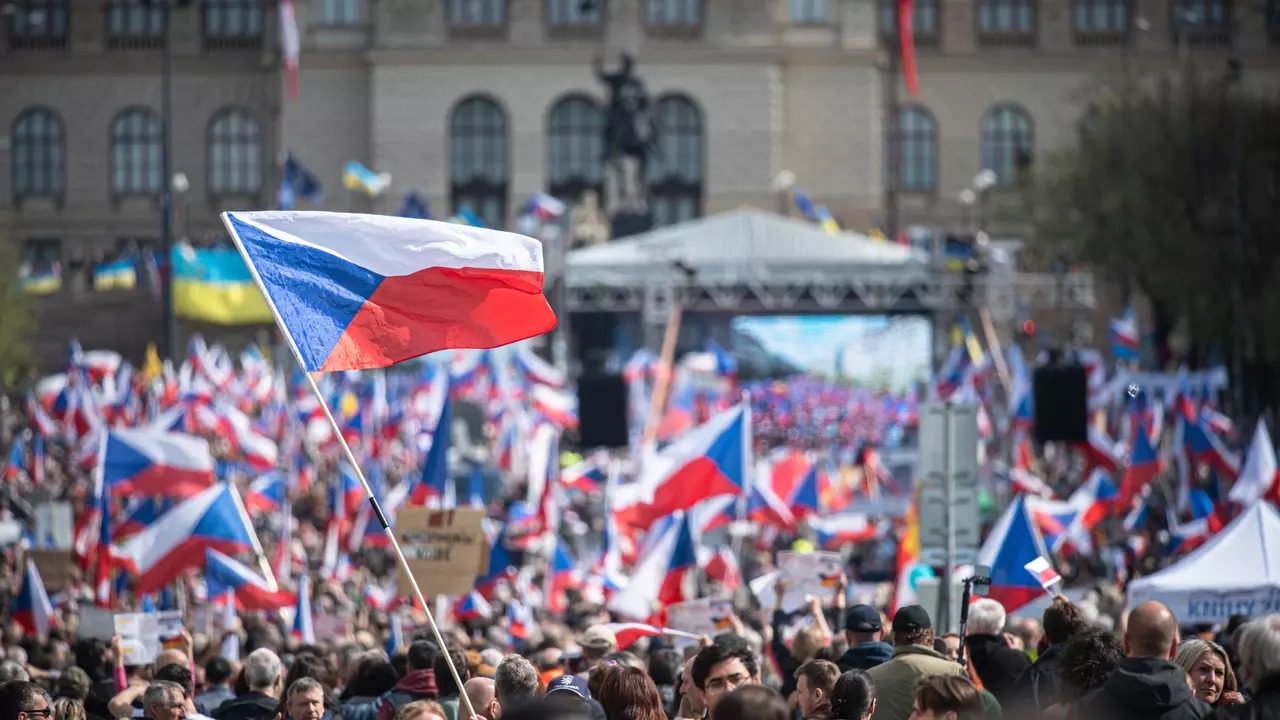According to the Czech Ministry of the Interior, the Czech Republic’s traditional extremist and xenophobic populist scene has been entirely overshadowed by the antisystem movement in the first half of this year. The move is generating personalities from social media environments who are competing with each other or forming short-term alliances. The thinking of part of Czech society has also been deeply influenced by the long-term covert undermining of democracy by Russian hybrid operations. The Ministry of the Interior stated this in its report on extremism for the first six months of this year.
Compared to similar groups before the Covid-19 pandemic, the current movement is, according to the Ministry, “more vital” It is mainly made up of people over 40 years old. The Ministry stated this is a “rebellion of middle-aged or older people who feel existential fears and experience a sense of alienation.”
The antisystem movement comprises many disparate groups with limited members and a limited lifespan. These groups often consisted of only a few individuals. Still, they tried to give the impression of being mass, well-organized entities with political ambitions, “including replacing the existing political system with a different way of governing.”
Representatives of some groups hide behind various conspiracy theories or try to give them a spiritual dimension. “So-called people who exploit the frustrations of others to gain popularity, financial gain, or political capital have also been attracted to the movement,” the ministry said.
According to the Ministry of the Interior, people active in the antisystem movement have also begun to adopt the idea that the Czech Republic is not a legitimate state. Until now, this concept of so-called sovereign citizens has mainly manifested in pressure on authorities or ignoring their calls. However, activity has culminated in incidents at the Prague City Court or the Hradec Králové Regional Court. These individuals attempted to “lock specific court proceedings against accused individuals who were portrayed as victims of an illegitimate system,” the ministry explained.
In the first half of this year, the Ministry registered many activities under the pro-Russian hybrid influence. It is directed against the Czech Republic because it supports Ukraine. In addition to producing disinformation and supporting antisystem movements, there are repeated cyber attacks, alarmist messages, and intimidation of opponents. According to the Ministry of the Interior, the goal is to undermine and weaken the pillars of the democratic system.
Right-wing extremists have focused primarily on foreign events and maintaining contacts this year. Domestic groups have been paralyzed by internal disagreements and fear of government sanctions and cannot generate charismatic personalities. Anarchist collectives are “intellectually exhausted and stereotypical,” the”community is rigid, and new members do not own. The Ministry did not record any significant manifestations of religious extremism.
Orthodox communists continued to spread pro-Russian narratives this year, and the Ministry registered activities of Stalinists who downplay communist crimes. According to the Ministry, some Orthodox communists openly question democratic principles. The deputy chairman of the Communist Party of Bohemia and Moravia, Josef Skála, has attracted the most attention, the ministry said. “Over time, he has moved away from purely community ideas and has become more oriented towards the so-called antisystem movement,” the office added.
According to the report, Xeno’sphobic or racist expressions of individuals without ties to the right-wing extremist environment also appeared this year. In connection with the killing of a Roma in Brno, the ministry registered xenophobic statements against Ukrainians and the Roma community. Some people tried to inflame tensions further, while others warned against applying collective guilt.
“In the future, it is necessary to expect mutual conflicts between some Ukrainians and Roma, or Czechs, may continue to appear,” the ministry said. According to the ministry, the majority and minorities have been experiencing stressful situations since the pandemic, which can increase their sensitivity and reactivity to inter-ethnic conflicts. “If this fact is neglected or underestimated, tension will increase,” and extremists and populists will exploit the situation,” the ministry warned.








